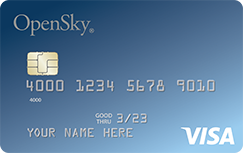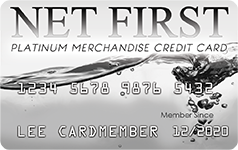Areas of Your Life Affected By Your Credit Score
A credit score is a number between 300-850 that estimates your creditworthiness by taking into account the details on your credit report. Having a good credit score is important because it determines whether you’ll qualify for a loan or new service and how beneficial the terms of that loan or service are. In the case of a loan, the difference between being a poor credit risk and an excellent credit risk could be the difference between hundreds and even thousands of dollars in savings over the course of a loan. Some of the most common transactions that may be influenced by your credit score are:
- Applying for a loan
- Applying for a credit card
- Renting an apartment
- Purchasing a cell phone
- Signing-up for a utility such as electricity or internet service
- Leasing or buying a car
- Applying for a mortgage
What Goes Into Your Credit Score?
Your credit score is calculated using ONLY the information on your credit report. Generally, the information on your credit report that will affect your credit score are:
- Number, age, and type of credit accounts
- Payment history
- Credit utilization rate
- Total debt
- Available credit
- Public records including tax liens, bankruptcy or civil judgments
- How many new credit accounts have been recently opened
- Number of hard inquiries into your credit report

What’s NOT In Your Credit Score?
- Any information not found on your credit report.
- Under the protections of the Consumer Credit Protection Act, credit scoring formulas are prohibited from considering your race, color, religion, national origin, sex, or marital status.
- Your age.
- Where you live.
- Your salary, occupation, job title, employer, date employed or employment history (although not included in the credit score calculation, lenders may consider this information in evaluating your overall credit report)
- Any interest rate being charged on a particular credit card or account.
- Certain types of “soft” inquiries including consumer disclosure inquiries (when you check your own credit report), employer inquiries (when an employer checks your credit report), promotional inquiries (when a lender checks your credit in order to make you “preapproved” credit offer), or account review inquiries (when your lender checks your credit to review your account).
- Child/family support obligations.
- Any information proven not to predict future credit performance.
- Whether you are receiving credit counseling.
Two types of Credit Scores
There are two types of credit scores that mortgage lenders, landlords, credit card issuers, and utility companies commonly use: the Fair Isaac Corporation or “FICO” score and the VantageScore, developed by the 3 major credit bureaus – Equifax, Experian, and TransUnion. Although FICO credit scores are more commonly used, VantageScores have become increasingly popular. The scoring methods are similar, but there are differences that may make a difference to you.
Length of Credit History and Scoring Requirements
In order to get a FICO credit score, your credit report must have at least 1 account open for at least six months and at least 1 account reported to a credit bureau within the last 6 months. By contrast, a VantageScore requires only 1 month of credit history and 1 account reported to a credit bureau within the last 2 years.
Because of these differences, VantageScore issues credit scores to millions of consumers before they even qualify for FICO scores. Therefore, if you’re just establishing your credit, a VantageScore may be able to prove your credit worthiness before FICO has issued you a score.
Late payments
Both types of scores consider late payments including: how recently the late payment occurred, how many accounts have been late, and how may payments have been missed on each account. However, whereas FICO treats all late payments the same, VantageScore penalizes late mortgage payments more heavily. Therefore, if you’ve been late in paying your mortgage, you might have a lower VantageScore than FICO score.
Treatment of Hard Inquiries and “Deduplication”
Both VantageScore and FICO penalize too many “hard inquiries” in a short period and use a method called “deduplication” so that if you’re shopping around for a mortgage and multiple mortgage lenders submit a hard inquiry, during that time period the grouping of inquiries is considered as one inquiry only. However, the time period that they use to deduplicate the hard inquiries is different. VantageScore score uses a 14-day range and FICO uses a 45-day range. FICO also only applies deduplication to mortgages, auto loans, and student loans whereas VantageScore look at all types of credit.
Low Balance Collections
Both VantageScore and FICO penalize accounts sent to collection agencies. However, FICO will ignore collections when the original balance was less than $100.
Scoring Classifications
A FICO score below 670 is considered to be Fair and below 579 Very Poor. Above 670 is considered to be Good, above 740 is Very Good, and between 800-850 is considered Exceptional.

What is considered a good VantageScore? A VantageScore below 650 is considered to be Poor and below 550 very Poor. Between 650-699 is Fair, 700 and above is Good, and 750 and above is Excellent.

Whichever type of credit score is used, you want to maintain or improve your score by have long history of paying your bills on time, history, a good mix of credit, and a credit utilization rate below 30%. If you have a good or excellent credit score, the terms of your loans and the interest rates on your loans will likely be more favorable. Better terms and lower interest rates means saving money –sometimes a lot of money — over the course of your loans.
Chase Sapphire Preferred® Card
With a 60,000 point new cardmember bonus when you spend $4,000 in the first 3 months of having the card, plus 2x points on travel and at U.S. restaurants — all for a $95 annual fee — this card is one of the top rewards card values available. Chase points are transferable to 9 airlines and 4 hotels, giving you the option of booking directly via these loyalty programs for some massively lucrative award redemptions in first & business class or at 5-star luxury hotels & resorts.
















